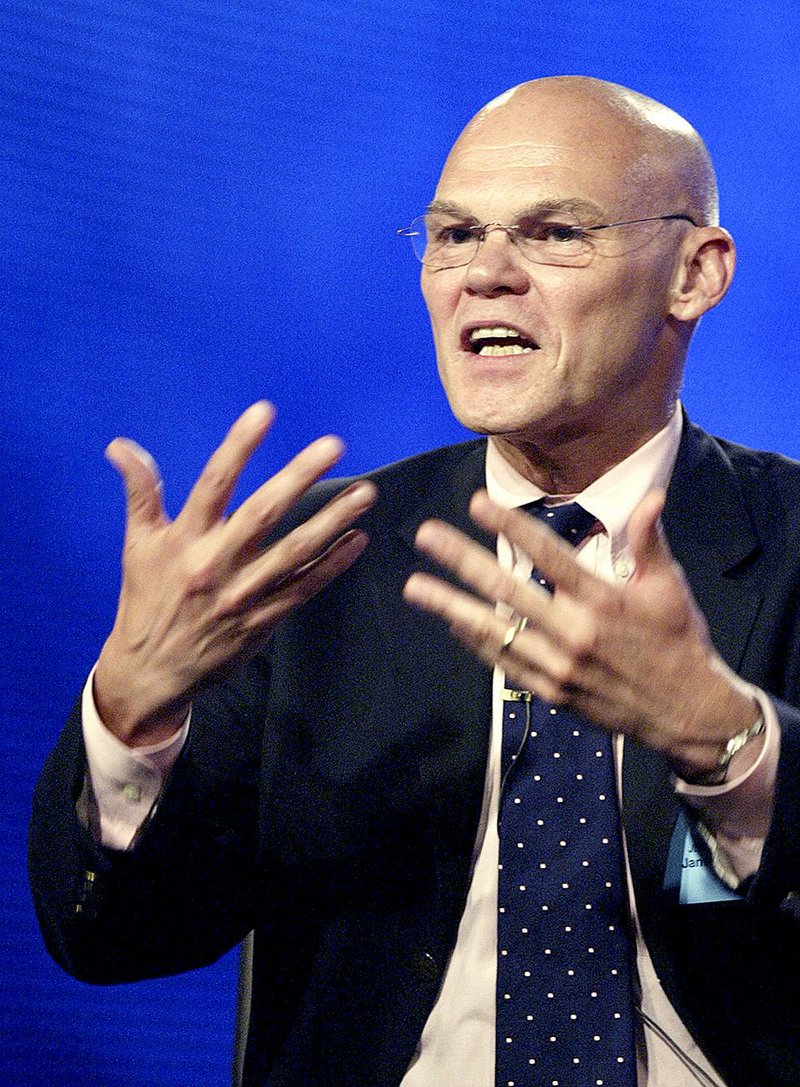On MSNBC last week, 70-year-old James Carville denounced the coverage of his old friend Hillary Rodham Clinton's use of a personal email account at the State Department, ticking off two decades' worth of scandals surrounding the Clintons that he attributed to an irresponsible news media.
Carville complained to the host, Andrea Mitchell, that he had "lived through this."
"Do you remember Whitewater?" he asked. "Do you remember Filegate? You remember Travelgate? You remember Pardongate? You remember Benghazi?"
Meanwhile, far from the television lights, Robby Mook, the 35-year-old who is likely to manage Clinton's 2016 presidential campaign, kept his head down and worked the phones from his standing desk to build a field operation in Iowa, set up technology to collect data to target voters and hire a campaign staff in a handful of key states. Mook was 12 and auditioning for school plays in Vermont when Bill Clinton was first elected president. He was a popular high school freshman when Ken Starr investigated Whitewater.
The uproar over Hillary Clinton's use of personal email as secretary of state, which shielded her correspondence from public records requests, has presented the first media firestorm in her pursuit of the White House. But it has also revealed the stark generational divide that confronts her budding 2016 campaign.
Over more than two decades in national politics, the Clintons have amassed an army of well-meaning defenders who will bring to 2016 old battle wounds and axes to grind that date back to the White House and Arkansas -- perhaps not the ideal message in a presumptive campaign that seeks to reintroduce the 67-year-old Clinton as a fresh, forward-looking candidate.
It falls largely on Mook, and the band of young operatives he has assembled (called the Mook Mafia), to move the grievance-laden Clinton machine into the modern political age. The success of Clinton's campaign will rest in part on whether this younger generation of earnest, data- and social-media-savvy operatives can prevail.
"They are going to be the first ones to hit the beach on D-Day," said Chris Lehane, a Democratic operative and former aide to Bill Clinton. "To get the campaign off the beach while under fire, the front-line troops will need to be in charge and empowered to run a modern-day, forward-looking, smart campaign."
The Clintons anointed Mook as much for his ease with data and technology as for his calm temperament. They value his rare ability to charm and include the abundant advice-givers without allowing them to become too intrusive. Still, asserting himself among so many influential veterans will not be easy.
Even as Mook was starting to build the infrastructure of the campaign, a crowded circle of advisers joined him in deliberating over how Hillary Clinton should respond to the email controversy. They included John Podesta, her presumptive campaign chairman, who has known the Clintons since George McGovern's presidential campaign in 1972; the former Clinton administration officials Cheryl Mills and James Kennedy; Huma Abedin, a longtime aide to Hillary Clinton; and Mandy Grunwald, who has advised the Clintons since 1992.
Ultimately, the strategy they settled on -- having Clinton publicly address the controversy Tuesday -- harked back to the approach used in 1994, when Clinton held a lengthy news conference to address the Whitewater inquiry and a 1970s commodities trade in Arkansas. Comparisons quickly arose: "Mrs. Clinton is stuck in the '90s," declared the conservative talk show host Rush Limbaugh.
The next day, the operation took its first coordinated step toward wrangling the Clintons' old friends and former aides, like Carville. Clinton's 31-year-old press secretary, Nick Merrill, hosted a conference call with about 25 far-flung surrogates to make sure they delivered the same message about the emails. Part of why Mook landed the job was that in 2013, as the campaign manager for Terry McAuliffe -- governor of Virginia and a close friend to Bill Clinton -- was because he deftly nurtured the Clintons' vast network of friends with frequent phone calls but did not get distracted by the noise and drama that often attaches itself to the couple.
"Eighty percent of it is people just want to be heard, and Robby was always available," said Tina Flournoy, chief of staff to Bill Clinton.
Mook's experience working for the Clintons leaves him well-positioned to bridge the campaign's generational gap.
"He's old from the perspective that he worked for the Clintons in 2008, and new enough that he wasn't really part of the inner circle of running the campaign," said Thomas Nides, a friend and adviser who worked for Hillary Clinton at the State Department.
No one could have predicted that the first big test of his abilities would come so early, with the email controversy, but people close to Mook say he has blocked out the crisis and is focused on the expected start of the campaign in April.
"He will be, I think, in a Hillary campaign what he was in the McAuliffe campaign," said Ellen Qualls, a Democratic strategist based in Alexandria, Va. "King of avoiding distractions and shiny objects."
A Section on 03/15/2015
